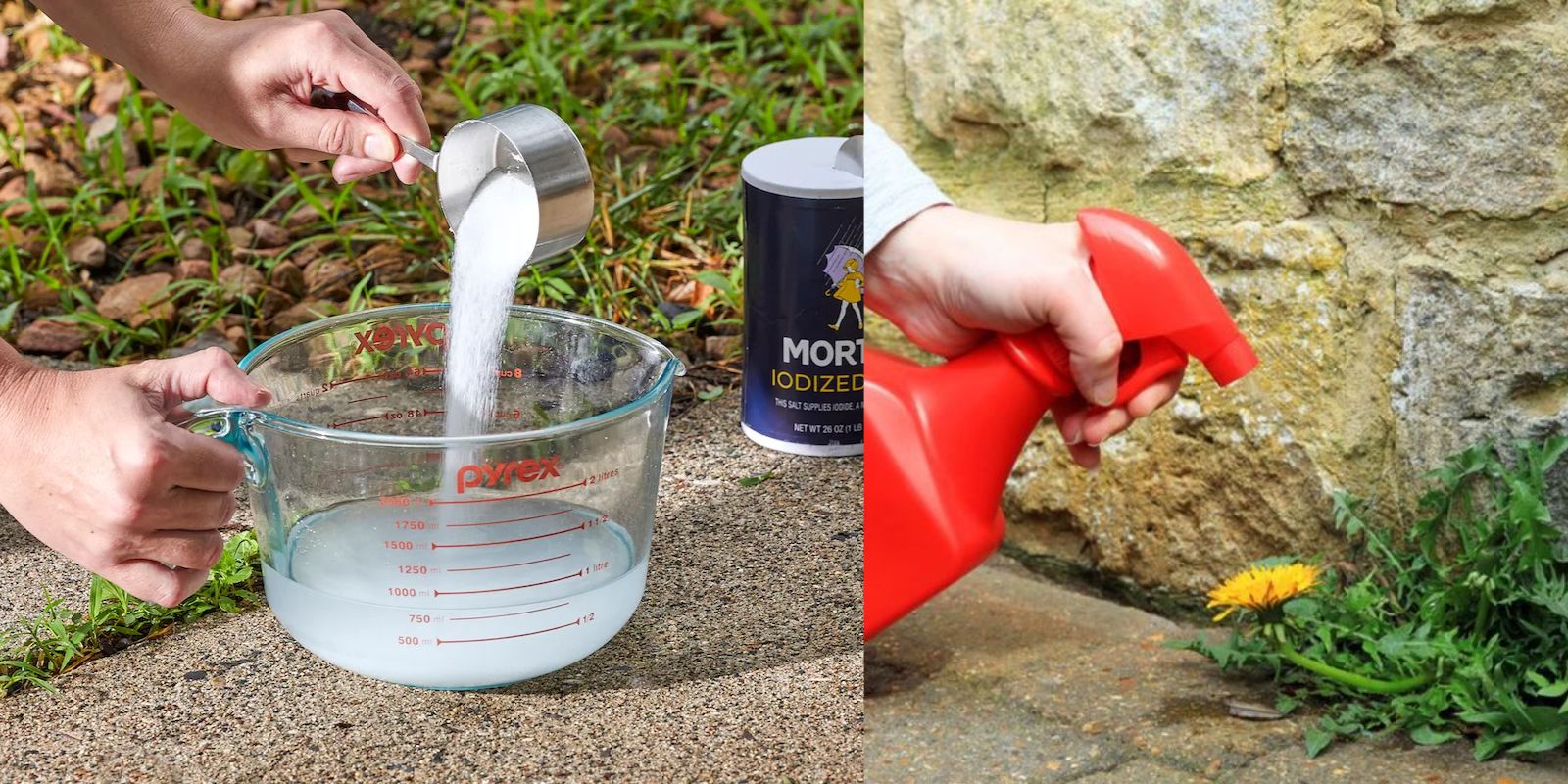When it comes to maintaining a weed-free garden, many gardeners are constantly on the lookout for effective, natural solutions. Epsom salt, a common household item known for its various uses in gardening and wellness, often pops up as a potential remedy for weed control. But does Epsom salt really work to kill weeds? In this article, we’ll dive deep into the science behind Epsom salt, explore how it interacts with weeds, and provide practical advice for using it effectively in your garden.
What is Epsom Salt?
Epsom salt, chemically known as magnesium sulfate, is a mineral compound consisting of magnesium, sulfur, and oxygen. It has been used for centuries in various applications, from soothing sore muscles to enhancing plant growth. In gardening, Epsom salt is frequently touted for its ability to boost nutrient uptake, improve plant health, and, intriguingly, control weeds.
The Science Behind Epsom Salt and Weed Control
To understand whether Epsom salt can effectively kill weeds, it’s important to consider how it affects plants. Epsom salt’s primary components, magnesium and sulfur, are essential nutrients for plants. Magnesium helps plants absorb other nutrients and supports photosynthesis, while sulfur is vital for protein synthesis and enzyme function.
However, when it comes to weeds, the role of Epsom salt is less about providing nutrients and more about its potential as a desiccant. The idea is that the salt’s dehydrating properties can damage weed tissues, leading to their death. But does this theory hold up in practice?
How to Use Epsom Salt for Weed Control
If you’re interested in trying Epsom salt as a weed killer, here’s a step-by-step guide to using it effectively:
1. Identify the Target Weeds
Before applying Epsom salt, it’s crucial to identify the weeds you want to control. Epsom salt works best on smaller, more manageable weeds and is generally most effective on annual weeds rather than perennial varieties. Ensure that the weeds you target are not in close proximity to desirable plants, as Epsom salt can also affect them if not used carefully.
2. Prepare the Epsom Salt Solution
Mix Epsom salt with water to create a solution. A common recipe is 2 tablespoons of Epsom salt per 1 quart (4 cups) of water. You can adjust the concentration based on the size and type of weeds you’re dealing with.
3. Apply the Solution
Use a spray bottle or garden sprayer to apply the Epsom salt solution directly onto the leaves of the weeds. Ensure thorough coverage, but avoid spraying desirable plants or garden beds where you do not want the solution to reach. For larger areas or more persistent weeds, you may need to use a larger quantity of the solution.
4. Monitor and Repeat
After application, monitor the weeds for signs of wilting and death. Epsom salt may take a week or more to show noticeable results. If the weeds are persistent or if the initial application did not yield the desired results, you might need to reapply the solution.
Pros and Cons of Using Epsom Salt for Weed Control
Pros:
- Natural and Non-Toxic: Epsom salt is a natural substance and is considered safer for the environment compared to many chemical herbicides.
- Dual Purpose: Beyond weed control, Epsom salt can also benefit plants by providing essential nutrients, particularly magnesium and sulfur.
- Cost-Effective: Epsom salt is relatively inexpensive and widely available, making it a budget-friendly option for gardeners.
Cons:
- Limited Effectiveness: Epsom salt is not a comprehensive weed killer and may only work on certain types of weeds, particularly annuals. It is less effective on deep-rooted perennial weeds.
- Potential for Harm: Overuse of Epsom salt can lead to soil imbalances and may harm desirable plants if they come into contact with the solution.
- Slow Results: Epsom salt may take time to show visible results, and multiple applications might be necessary for stubborn weeds.
Alternatives to Epsom Salt for Weed Control
If Epsom salt doesn’t meet your needs or if you’re looking for additional options, consider these alternatives for effective weed control:
1. Vinegar
Household vinegar, particularly the higher-acidity varieties like white vinegar, can be an effective natural weed killer. Apply it directly to weeds, avoiding desirable plants.
2. Salt
Table salt or rock salt can kill weeds by dehydrating them. However, it can also harm surrounding soil and plants, so use it sparingly and with caution.
3. Mulching
Organic mulch, such as straw, wood chips, or grass clippings, can suppress weed growth by blocking sunlight and preventing weed seeds from germinating.
4. Hand Weeding
Manual removal of weeds is an effective way to control them without using chemicals. Regular hand weeding, especially after rain when the soil is moist, can help keep weeds in check.
Preventive Measures to Reduce Weed Growth
While dealing with existing weeds is important, preventing weed growth in the first place can save you time and effort. Here are some preventive measures to consider:
- Use Mulch: Apply a layer of mulch around plants to inhibit weed growth and retain soil moisture.
- Improve Soil Health: Healthy soil supports strong plant growth and can naturally suppress weed development. Amend your soil with organic matter to improve its structure and fertility.
- Proper Spacing: Planting crops and garden plants closer together can reduce space available for weeds to grow. Just be sure to allow enough room for air circulation and plant health.
Conclusion
Epsom salt can be a useful tool in your gardening arsenal, particularly for its nutritional benefits and its potential as a weed control method. However, it is not a one-size-fits-all solution and may be most effective on specific types of weeds. By understanding its limitations and considering alternative methods, you can develop a comprehensive strategy for managing weeds in your garden.
Call to Action
Have you tried using Epsom salt for weed control? Share your experiences and tips with us! 🌿✨ #WeedControl #EpsomSalt #GardenTips #EcoFriendlyGardening #GreenThumb #NaturalWeedKiller #GardeningHacks #HealthySoil #OrganicGardening

